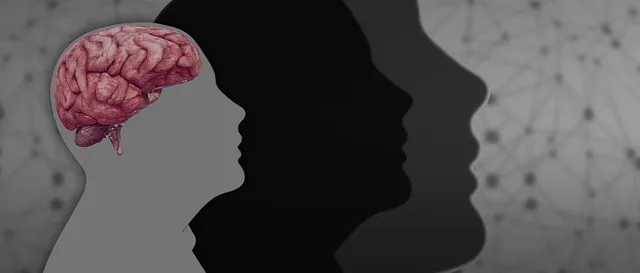Crisis Intervention Teams (CITs) at the Parker Kaiser Permanente mental health center provide vital, immediate support to individuals in emotional distress, utilizing specialized training in de-escalation, rapport building, and care coordination. This proactive approach enhances care quality, improves patient outcomes, and promotes well-being within the mental health center community. The holistic crisis intervention program focuses on both mental health and medical components, emphasizing early identification and intervention through skills like Compassion Cultivation Practices and Resilience Building techniques. Continuous improvement through regular assessments, technological advancements, and cultural sensitivity modules is key to future CIT training success.
“Crisis intervention teams (CITs) play a pivotal role in enhancing the resilience of mental health centers. This article delves into the significance of CIT training programs, drawing from the renowned Parker Kaiser Permanente model. We explore how this approach equips healthcare professionals with essential skills to manage crises effectively.
Covering topics such as team understanding, training methodologies, and implementation strategies, we provide insights into best practices. Additionally, we discuss future directions for evaluating and refining these critical programs within Parker Kaiser Permanente mental health centers.”
- Understanding Crisis Intervention Teams: A Vital Resource for Mental Health Centers
- The Parker Kaiser Permanente Model: Training Programs for Effective Response
- Implementing and Evaluating Crisis Intervention Team Training: Best Practices and Future Directions
Understanding Crisis Intervention Teams: A Vital Resource for Mental Health Centers

Crisis Intervention Teams (CITs) play a pivotal role in mental health centers, offering crucial support to individuals facing severe emotional distress or psychological crises. These specialized teams are designed to provide immediate and effective assistance, ensuring that folks receive the help they need when it matters most. At Parker Kaiser Permanente mental health center, for instance, CIT training programs empower staff with the skills to navigate complex situations, fostering a safe environment for vulnerable patients.
Through comprehensive training, which often includes Self-Awareness Exercises, Social Skills Training, and Depression Prevention strategies, CIT members learn to de-escalate high-stress scenarios, build rapport with individuals in crisis, and coordinate care effectively. This proactive approach not only enhances the quality of care but also contributes to improved patient outcomes and overall well-being within the mental health center community.
The Parker Kaiser Permanente Model: Training Programs for Effective Response

The Parker Kaiser Permanente Model offers a comprehensive approach to crisis intervention team training, focusing on both mental health and medical aspects. This model emphasizes the importance of early identification and intervention, aiming to reduce the severity of crises and improve patient outcomes. Through innovative programs, it teaches essential skills such as Compassion Cultivation Practices, which foster empathy and understanding among team members, and Resilience Building techniques to enhance coping mechanisms for both individuals and the team as a whole.
Effective crisis response also relies on robust Communication Strategies. The model encourages open dialogue, ensuring that team members feel empowered to share insights and concerns. This collaborative approach promotes a supportive environment, enabling rapid decision-making and tailored interventions. By combining these practices, the Parker Kaiser Permanente mental health center trains teams to manage crises with compassion, efficiency, and resilience.
Implementing and Evaluating Crisis Intervention Team Training: Best Practices and Future Directions

Implementing and evaluating crisis intervention team (CIT) training is a multifaceted process that requires careful planning and strategic execution. At the Parker Kaiser Permanente mental health center, for instance, CIT training has become an integral part of their comprehensive approach to patient care. The program focuses on enhancing the skills of frontline staff in managing crises effectively, fostering a culture of support within the team, and promoting de-escalation techniques. Regular simulations and scenario-based learning play a pivotal role in preparing teams for real-life situations, ensuring they can provide timely and appropriate interventions.
Looking ahead, best practices in CIT training should emphasize continuous improvement through regular assessments and feedback mechanisms. This includes tracking the impact of training on staff resilience building, stress management, and burnout prevention. By integrating these aspects, CIT programs can evolve to meet the dynamic needs of healthcare workers while ensuring they remain equipped to handle crises with compassion and professionalism. Future directions may involve leveraging technology for virtual training sessions, incorporating cultural sensitivity modules, and fostering collaboration with external experts to enhance the overall effectiveness of crisis intervention strategies.
Crisis intervention team (CIT) training programs, as exemplified by the successful Parker Kaiser Permanente model, are invaluable assets for mental health centers. By equipping staff with the necessary skills and knowledge, these programs foster effective response to crises, ultimately enhancing patient care and outcomes. As the field continues to evolve, best practices in implementation and evaluation, including ongoing research and adaptation, will ensure that CIT training remains a game-changer in providing support for individuals in mental health centers, mirroring the comprehensive approach of Parker Kaiser Permanente mental health center.


